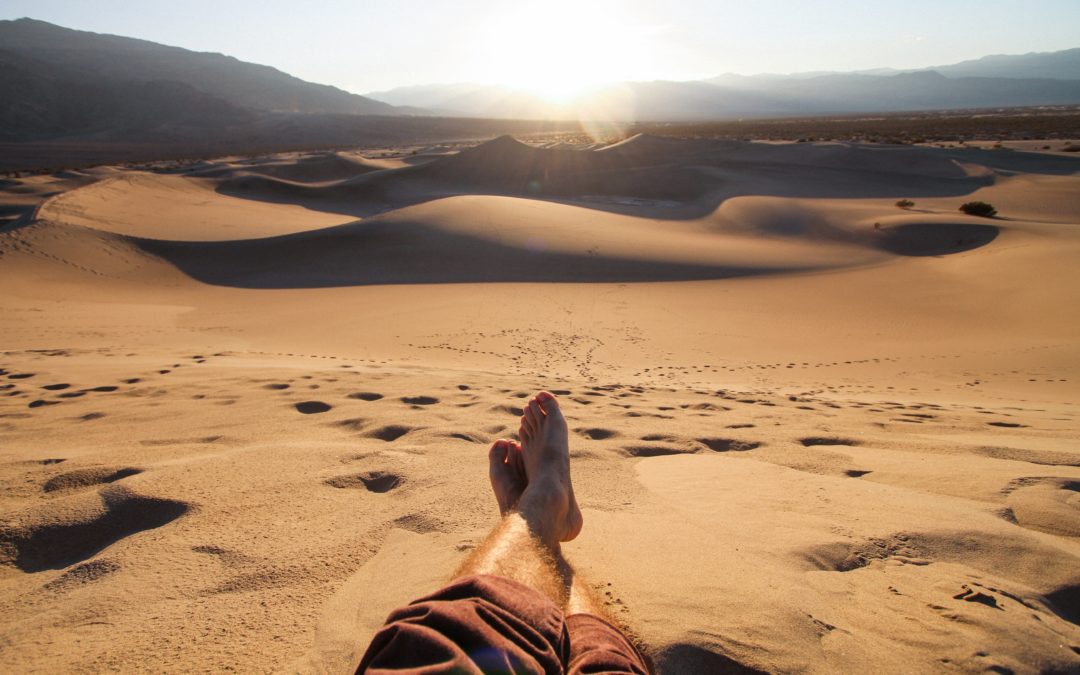I can still remember my first drive across the desert. It was part of an adventurous road trip with two college buddies in the heat of a summer where the temperatures were reaching degrees that, in my young life, I had not imagined possible. It was long before the days of cell phones and internet where you learned new things real-time and not on a screen.
There were the road signs reminding you to fill-up your gas tank due to the log gaps between civilization. No doubt, high temperatures and long gaps were a bad combination with an empty tank and no cell phone. Things can become very real, very quickly. One of the new experiences, I remember most, seemed to fill every mile along those desert roadway gaps.
And it wasn’t real at all.
It was the mirage – a visual reality that exists only as a perception. The desert heat, fueled by the relentless sun’s rays along the endless pavement, created images so real you knew you would soon reach them if you just kept driving. The mirage is an illusion – that only seems real from a distance. You can drive forever, using all of your precious fuel and never get there. Eventually, the sun just sets.
Years beyond those desert roadways, we speed along high-capacity freeways packed with the technology of virtually no gaps at all. This drive also has its own set of mirages.
Control is one of them.
And with exponentially increasing capabilities, harnessing control can seem so close – so achievable. We can see it in the near distance as we accelerate on final approach to grab ahold of it. Unfortunately, this phantasm of control isn’t real. It only appears to be reachable. And so, we can waste a lot of energy in trying to get there. This is true in organizations of most every size in most any context — and it is true in our communities, our families and most certainly in our own personal life.
Our draw to the fantasy of control can be driven by a number of reasons. Sometimes control comes from a desire for power and other times to ease a fear — often two sides of the same coin. The greatest deception is that our draw is most often driven from the best of intentions.
There is a big difference between irresponsibly being out-of-control and the assumption that you are in control. One is dangerous, yet both are wasteful. One is done out of no intention and the other is done with great intention. One spirals downward while the other goes in circles with an allusion of progress. Yet, neither get us anywhere useful.
The concept of control certainly has its place. You want to control the car you are driving. You want the pilot to control the plane in which you are flying. Yet, even then, we certainly know that this control has its own aspect of vulnerability.
Knowingly, or unknowingly, striving for control is much like driving towards the mirage. While your control appears close and real, it never is. The only thing that’s real is the constraint the striving for control places on you. Accepting that you are not in control loosens these constraints.
And unleashes creativity.
Just imagine how much of our energy and resources are used in trying to control what is not controllable. In many cases it nurtures a negative energy. This is just as true in the culture of organizations as it is in the relationships within our own lives. In trying to control, we create resistance – whereas in letting go of our illusion of control, we free-up resources for creation. We begin to reveal what is genuine and authentic – where responsible choices come naturally.
Constraints feel very different than invitation. It is why genuine love, respect and gratitude unleash an endless energy without ever depleting themselves. Their energy has no need for control. They show-up for whatever conditions may be.
The truth is that when we stay focused on the mirage – we miss the unique beauty of the desert through which we are traveling. No question, sometimes there are long gaps — what if we filled them with love, respect and gratitude? I have no doubt that organizational cultures, and personal relationships alike, would no longer show a need for control. We would simply be grateful for what they have become as we travel through them.
As always, I’m so grateful when you share your thoughts below!



John – that was a pleasure to read. Thank you for allowing me to end a busy day with such a wonderful perspective. I’ll do my best to influence my own experience this evening, by freeing up the energy that would otherwise be spent controlling the experience…and be present. Cheers.
Doug … I hope it proves to an awesome evening that rolls right into tomorrow! Thanks for engaging in the message.
John, as always you help me to enrich my life with a gentle reminder not let outside stressors (mirages) distract from what is truly important. Thank you